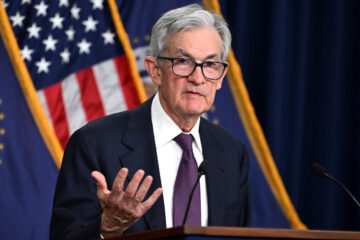The social media giant steps up efforts to limit Russian propaganda on its platforms.
Has Facebook finally learned from the Cambridge Analytica debacle?
In any case, the social media giant seems determined not to find itself in the crosshairs from the invasion of Ukraine by Russia which has been condemned all over the world and sparked waves of demonstrations in most major cities.
Facebook, which renamed itself Meta Platforms (FB) – Get Meta Platforms Inc. Class A Report last October, says it has taken down many Russian accounts that sought to spread misinformation against Ukraine on its platforms.
And more specifically, Facebook says it has detected a disinformation network running accounts, pages, groups and communities targeting Ukraine on social media.
“We took down a network run by people in Russia and Ukraine targeting Ukraine for violating our policy against coordinated inauthentic behavior,” the company explained in a blog post. “They ran websites posing as independent news entities and created fake personas across social media platforms including Facebook, Instagram, Twitter, YouTube, Telegram and also Russian Odnoklassniki and VK.”
After Donald Trump’s victory in 2016, Facebook was accused of letting Cambridge Analytica, a company specializing in strategic communications, use the data of nearly 50 million users to influence voters in favor of the Republican candidate.
Chris McGrath/Getty Images
Facebook Wants to Appear Reactive to Russian Propaganda
This scandal sounded the beginning of the controversies that tarnished the reputation of the company founded by Mark Zuckerberg. Facebook still hasn’t recovered despite its name change.
Zuckerberg recently decided to make Nick Clegg, the former British vice prime minister, the face and voice of Facebook, thus taking a step back from the media.
In its post about attacks against Ukraine, Facebook said that in the last 48 hours the company has uncovered a relatively small network of about 40 accounts, pages and groups on Facebook and Instagram. They were operated from Russia and Ukraine and targeted people in Ukraine across multiple social media platforms and through their own websites.
“We took down this operation, blocked their domains from being shared on our platform, and shared information with other tech platforms, researchers and governments,” the company detailed.
But Facebook also wanted to show that it had reacted quickly.
“When we disrupted this network on our platform, it had fewer than 4,000 Facebook accounts following one of more of its Pages and fewer than 500 accounts following one or more of its Instagram accounts.”
The modus operandi of this propaganda/disinformation operation consists in using fake accounts and operating fictitious personas and brands across the internet — including on Facebook, Instagram, Twitter, YouTube, Telegram, Odnoklassniki and VK — to appear more authentic in an apparent attempt to withstand scrutiny by platforms and researchers.
“These fictitious personas used profile pictures likely generated using artificial intelligence techniques like generative adversarial networks (GAN). They claimed to be based in Kyiv and posed as news editors, a former aviation engineer, and an author of a scientific publication on hydrography — the science of mapping water,” Facebook continued.
Russian propagandists ran a handful of websites masquerading as independent news outlets, publishing claims about the West betraying Ukraine and Ukraine being a failed state.
“Our investigation is ongoing, and so far we’ve found links between this network and another operation we removed in April 2020, which we then connected to individuals in Russia, the Donbass region in Ukraine and two media organizations in Crimea — NewsFront and SouthFront, now sanctioned by the US government,” added the company.
Ukrainian Personalities and Military Figures Targeted
Accounts of personalities and high Ukrainian officials, including Ukrainian military and public figures, were also compromised by actors acting on behalf of Russian interests, according to Facebook.
These attacks are carried out by ‘Ghostwriter’, “a threat actor that has been tracked for some time by the security community.”
Ghostwriter typically targets people through email compromise and then uses that to gain access to their social media accounts and post disinformation as if it’s coming from the legitimate account owners, Facebook explained.
“We detected attempts to target people on Facebook to post YouTube videos portraying Ukrainian troops as weak and surrendering to Russia, including one video claiming to show Ukrainian soldiers coming out of a forest while flying a white flag of surrender.”
“We’ve taken steps to secure accounts that we believe were targeted by this threat actor and, when we can, to alert the users that they had been targeted. We also blocked phishing domains these hackers used to try to trick people in Ukraine into compromising their online accounts.”
Facebook said it is continuing its investigation and recommends that users in Ukraine and Russia strengthen security around their social media accounts.
Users should be cautious when accepting friend requests and opening links and files from people they don’t know.
Users should also refrain from reusing the same passwords across different services to prevent malicious hackers from gaining access to their information, and Facebook also recommends to use a two-factor authentication on all online accounts.
Getty
Nathaniel Gleicher, head of security policy at Meta, posted on his Twitter account the guide to set up the two-factor authentication process.
“But remember to enable it on your other accounts too – incl[uding] your email!” he warned.
Facebook remains accessible in Russia, but Russian authorities have threatened to suspend its services after the social media giant rejected requests to block the flow of messages within the country.
Besides Facebook, Google (GOOGL) – Get Alphabet Inc. Class A Report, YouTube and Twitter (TWTR) – Get Twitter, Inc. Report have also announced measures against Russian entities. All three groups have received similar threats from authorities to those directed at Facebook.
Netflix (NFLX) – Get Netflix, Inc. Report pushed back on Monday, with a spokesperson saying that, “Given the current situation, we have no plans to add these channels to our service.”


